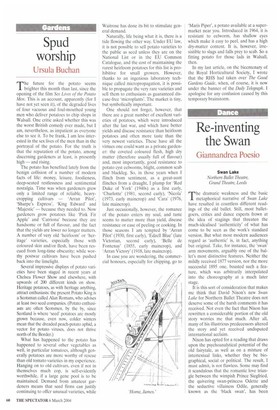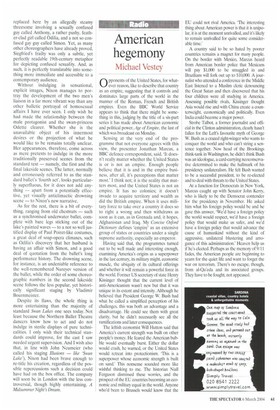Re-inventing the Swan
Giannandrea Poesio
Swan Lake Northern Ballet Theatre, Grand Theatre, Leeds
The dramatic weakness and the basic metaphorical narrative of Swan Lake have resulted in countless different readings of the old ballet. Still, most balletgoers, critics and dance experts frown at the idea of stagings that threaten the much-idealised 'authenticity' of what has come to be seen as the work's standard version. But what most modern audiences regard as 'authentic' is, in fact, anything but original. Take, for instance, the 'swan' arm movements, arguably one of the ballet's most distinctive features. Neither the mildly received 1877 version, nor the more successful 1895 one, boasted such a feature, which was arbitrarily interpolated into the choreography at a much later stage.
It is this sort of consideration that makes me think that David Nixon's new Swan Lake for Northern Ballet Theatre does not deserve some of the harsh comments it has received. Not even the fact that Nixon has rewritten a considerable portion of the old story worries me that much. After all, many of his illustrious predecessors altered the story and yet received undisputed international acclaim.
Nixon has opted for a reading that draws upon the psychoanalytical potential of the old fairytale, as well as on a mixture of intertextual links, whether they be biographical, social or political. The result, I must admit, is not flawless. Some may find it scandalous that the romantic love triangle between the wimpish Prince Siegfried, the quivering swan-princess Odette and the seductive villainess °dile, generally known as the 'black swan', has been replaced here by an allegedly steamy threesome involving a sexually confused guy called Anthony, a rather pushy, feather-clad girl called Odilia, and a not so confused gay guy called Simon. Yet, as many other choreographers have already proved, Siegfried's frailty was only a subtle, yet perfectly readable 19th-century metaphor for depicting confused sexuality. And, as such, it is perfectly translatable into something more immediate and accessible to a contemporary audience.
Without indulging in sensational, explicit images, Nixon manages to portray the development of the two men's liaison in a far more vibrant way than any other balletic portrayal of homosexual affairs I have ever seen. I only wish he had made the relationship between the male protagonist and the swan-princess Odette clearer. Whether she is the unavailable object of his innermost desires or the projection of what he would like to be remains totally unclear. Her appearances, therefore, come across as mere pretexts to indulge in the more traditionally preserved scenes from the standard text — namely, the first and the final lakeside scenes. The latter, normally and erroneously referred to as the standard ballet's 'fourth act', looks particularly superfluous, for it does not add anything — apart from a potentially effective, yet visually anticlimactic drowning scene — to Nixon's new narrative.
As for the rest, there is a bit of everything, ranging from old chestnuts — such as a synchronised underwater ballet, complete with bare legs sticking out of the lake's painted waves — to a not so well justified display of Paul Poiret-like costumes, a great deal of soap-opera climaxes, such as Odilia's discovery that her husband is having an affair with Simon, and a good deal of quotation from the ballet's long performance history. The drowning scene, for instance, is an undeniable reference to the well-remembered Nureyev version of the ballet, while the order of some choreographic numbers in the second lakeside scene follows the less popular, yet historically significant staging by Vladimir Bourrimeister.
Despite its flaws, the whole thing is more entertaining than the majority of standard Swan Lakes one sees today. Not least because the Northern Ballet Theatre dancers know how to act and do not indulge in sterile displays of pure technicalities. I only wish their technical standards could improve, for the cast I saw needed urgent supervision. And I wish also that, in line with John Neumeier (who called his staging Illusions — like 'Swan Lake'), Nixon had been brave enough to re-title his creation, regardless of the possible repercussions such a decision could have had on the box office. The company will soon be in London with the less controversial, though highly entertaining, A Midsummer Night's Dream.



















































































 Previous page
Previous page